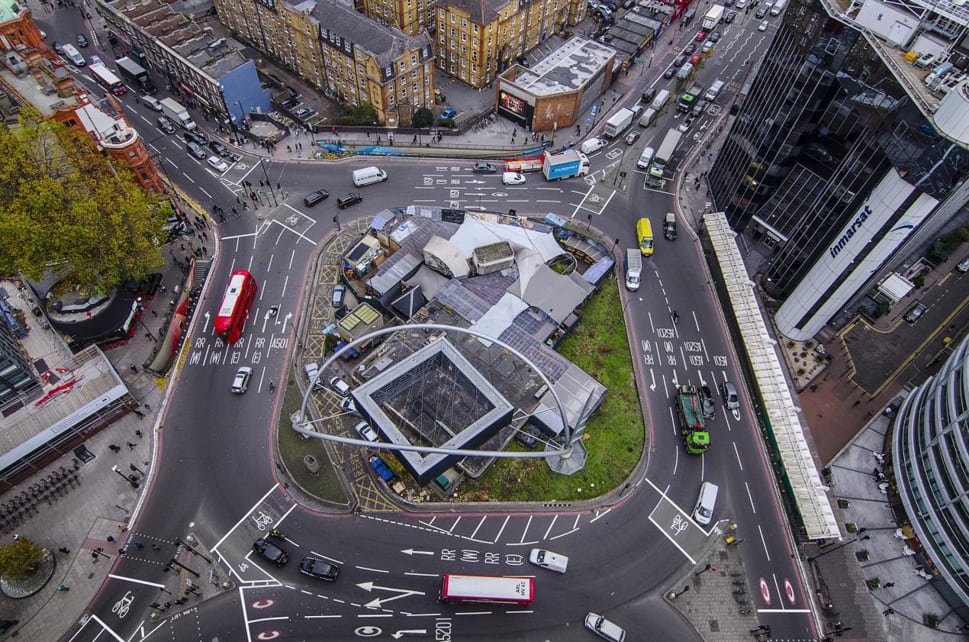Navigating the Maze: A Guide to Islington Old Street Building Regulations
Islington Old Street, London’s vibrant tech and creative hub, pulsates with ambition. Whether you’re transforming a Victorian terrace or revamping a modern office block, understanding the complex web of building regulations is crucial for a smooth and compliant project. This guide delves into the key regulations to consider, empowering you to navigate the process with confidence.
1. Building Regulations vs. Planning Permission: Demystifying the Difference
Before diving in, let’s differentiate between building regulations and planning permission. Islington building regulations, governed by the UK government, ensure the safety, health, and accessibility of your project. They cover aspects like structural integrity, fire safety, energy efficiency, and sanitation. Planning permission, issued by Islington Council, deals with the impact of your project on the surrounding area and aesthetics.
Understanding this distinction is crucial. Some projects might only require building regulations approval, while others might necessitate both. Always consult Islington Council’s planning portal to determine the necessary permissions for your specific project.
2. Decoding the Building Regulations Landscape: Your Essential Resources
Now, let’s explore the resources available to equip you with building regulations knowledge:
- Approved Documents: These documents, published by the government, provide detailed guidance on complying with specific regulations. Relevant documents for Islington Old Street projects might include Approved Document B (Fire Safety), Approved Document L (Conservation of Fuel and Power), and Approved Document M (Access to and Use of Buildings).
- Islington Council Building Control: This department offers invaluable support and guidance. Their website provides access to application forms, fees, and contact information for their building control surveyors.
- Chartered Institute of Building (CIOB): This professional body offers training and resources related to building regulations.
3. Key Building Regulations to Consider in Islington Old Street:
Here’s a breakdown of some crucial regulations to keep in mind:
- Structural Integrity: Whether you’re renovating or constructing anew, ensuring the structural soundness of your building is paramount. This involves complying with regulations related to foundations, walls, floors, and roofs.
- Fire Safety: Fire safety regulations are stringent, dictating fire compartmentation, escape routes, and fire alarm systems. Understanding these regulations and implementing compliant solutions is vital.
- Accessibility: The Equality Act 2010 mandates accessible buildings for everyone. Regulations address aspects like level access, wheelchair users, and visual impairments.
- Energy Efficiency: With sustainability a growing concern, Islington Council encourages energy-efficient construction. Familiarize yourself with regulations regarding insulation, heating systems, and renewable energy sources.
4. Additional Considerations for Islington Old Street Projects:
Beyond the core regulations, remember these factors specific to Islington Old Street:
- Conservation Areas: Parts of Islington Old Street fall within conservation areas, requiring additional considerations to preserve the architectural character. Consult Islington Council for specific guidelines.
- Listed Buildings: If your project involves a listed building, stricter regulations apply to protect its historical significance. Seek expert advice and guidance from Islington Council’s conservation team.
- District Heating: Islington Council encourages connecting new developments to the Citigen district heating network for increased sustainability. Explore this option for potential cost savings and environmental benefits.
5. Seeking Professional Help: When to Engage Experts
While some projects might seem straightforward, navigating building regulations can be complex. Consider seeking professional help from:
- Architects: Architects possess the expertise to design your project while adhering to regulations.
- Structural Engineers: For complex structural interventions, a structural engineer ensures the safety and stability of your building.
- Building Control Surveyors: These professionals assess your project against building regulations and issue approvals.
Remember, seeking professional guidance can save you time, money, and potential legal issues in the long run.
Conclusion: Building your dream project in Islington Old Street requires careful planning and adherence to regulations. By utilizing the resources provided, understanding key regulations, and considering specific local factors, you can navigate the process smoothly and bring your vision to life responsibly. Don’t hesitate to seek professional help when needed, and remember, a compliant project is a safe and successful project.
Bonus Tip: Explore Islington Council’s online resources and attend their informative workshops to gain further insights into building regulations specific to your project and location.
I hope this comprehensive guide empowers you to confidently navigate the world of Islington Old Street building regulations and turn your project into a reality!



Comments are closed